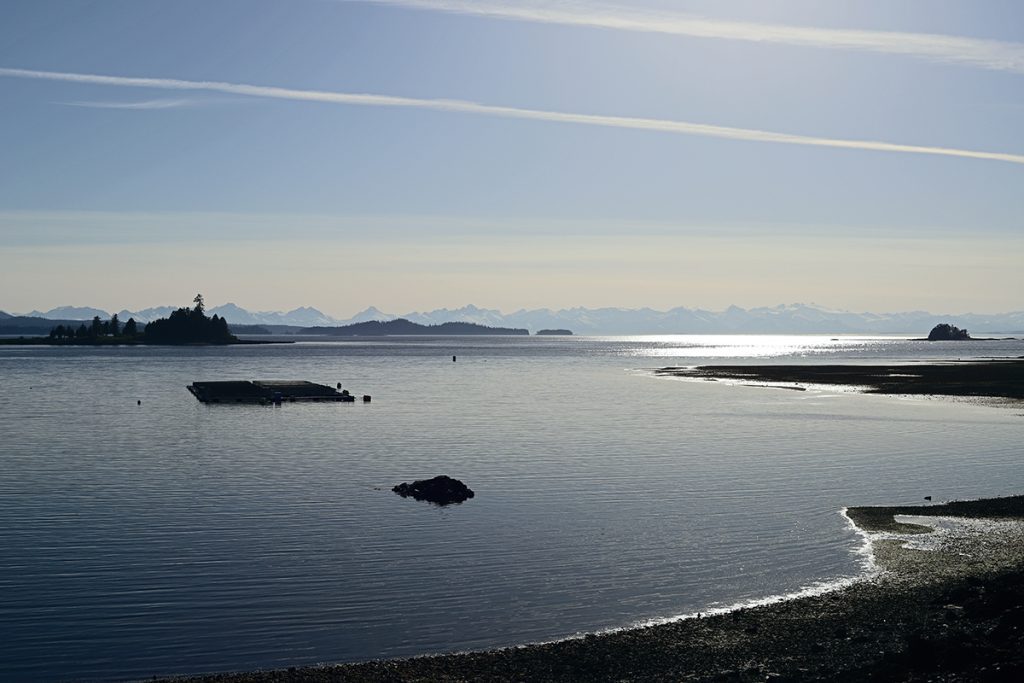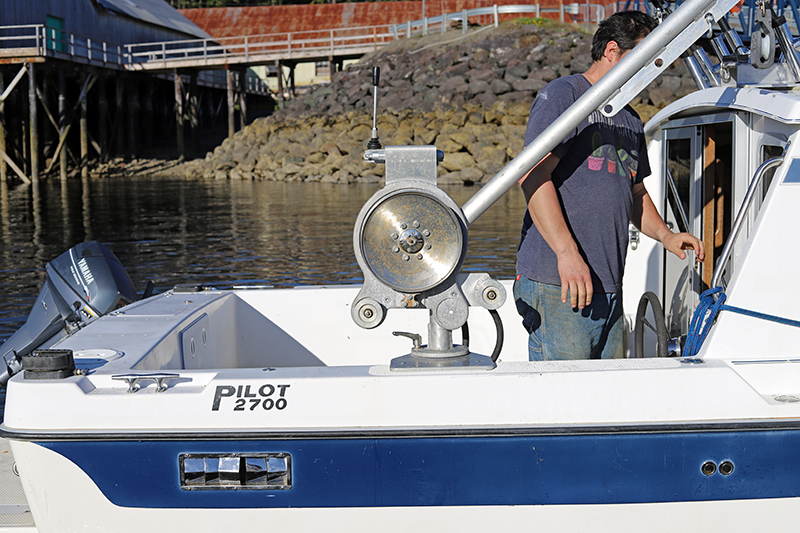
The Organized Village of Kake sought help from the Native American Rights Fund (NARF) to defend their right to continue their subsistence way of life and to work nation-to-nation with the federal government to address food-security concerns.
Background:
The Organized Village of Kake holds nation-to-nation status with the U.S. federal government and has existed for thousands of years prior to the formation of the State of Alaska. For millennia, the Tlingit people of Kake have hunted, fished, and gathered food from the seas and lands surrounding their island home in what we now call southeast Alaska. Today, subsistence hunting, fishing, and gathering remain a reliable way for the Organized Village of Kake tribal government to ensure everyone eats.

Accessible only by water plane or ferry and surrounded by the breathtaking Tongass National Forest on three sides, the people of Kake live a subsistence way of life. Jobs are few and the cost of commercially produced food runs very high. Commercial food arrives by ferry or seaplane only during times of the year when weather permits. The town has no mega-grocery store and food delivery is not an option. Beyond need, the Tlingit people and culture of the Organized Village of Kake remain connected to traditional foods gathered through subsistence hunting, fishing, and gathering.
The land and sea continue to provide for those who know how to hunt, fish, and gather, and the community remains connected to traditional foods and their subsistence way of life. What has changed is that now most Tlingit hunting and fishing grounds are designated as being owned and managed by the United States government. That is why, during the COVID-19 pandemic, Alaska Native tribal governments negotiated with the Federal Subsistence Board (FSB) to request an emergency hunt to avoid food shortages.
COVID-19 impacted Kake’s transportation channels as the first ferries of spring normally would begin to arrive. Like the rest of the planet, everything in Kake shut down. To ensure everyone could eat in spite of COVID-19 disruptions, tribal leaders requested an emergency subsistence hunt, which FSB granted. Instead of assisting the Village of Kake in its time of need, the State of Alaska filed a lawsuit against the FSB for authorizing the emergency subsistence hunt.
“It is an honor working with the Organized Village of Kake to protect the federal-tribal mechanism of a subsistence hunt,” said NARF Staff Attorney Matthew Newman.
The Litigation:
August 2020: Kake Files to Intervene
On August 10, 2020, the State of Alaska filed a complaint in the Alaska federal district court challenging decisions made by the Federal Subsistence Board (FSB), including: authorizing an emergency subsistence hunt for Organized Village of Kake and temporarily closing a section of federal lands in Southcentral Alaska to non-subsistence hunting. The U.S. charged FSB with setting all rules and regulations related to the taking of wild fish and game by qualified subsistence users within federal lands in Alaska. The state’s lawsuit seeks to strip the FSB of the ability to work with rural communities like Kake to ensure that local people have continued access to vital traditional foods.

The hunt the state is challenging was requested by the Organized Village of Kake to ensure residents of the community were able to harvest wild game during the height of the disruption caused by the global COVID-19 pandemic. On August 27, 2020, the Organized Village of Kake, filed to intervene in the federal court case brought by the State of Alaska.
Alaska’s lawsuit alleges that the FSB acted outside the boundaries of the Alaska National Interest Lands Conservation Act of 1980 (ANILCA), an act of Congress that prioritizes subsistence hunting and fishing over other uses on federal lands. ANILCA states “the situation in Alaska is unique in that, in most cases, no practical alternative means are available to replace the food supplies and other items gathered from fish and wildlife which supply rural residents dependent on subsistence uses” and includes a clause “to protect and provide the opportunity for continued subsistence uses on the public lands by Native and non-Native rural residents.”
The state’s suit poses a grave threat to Alaska’s dual system of fish and game management. The authority of the FSB to provide for the taking of subsistence fish and game outside of the state’s regulatory system is the cornerstone of Alaska’s subsistence harvest. Hundreds of communities, who do not benefit from the state’s short and constrictive hunting and fishing seasons, are able to use FSB-authorized harvests on federal lands to provide for their people. If the FSB does not have the authority to authorize or expand federal hunts, as the state claims, then that system—upon which so many tribal citizens depends—will be upended.
“The Organized Village of Kake, as a federally recognized Tribe, exerts its sovereignty over all aspects of our tribal territory and governance, which includes the responsibility to provide for food security and to address public health crises that threaten the community, including the COVID-19 pandemic. As Alaska Native people, we are only too familiar with the devastation that disease and epidemics can cause to our communities. The State of Alaska’s lawsuit is an attack on the right of our people to continue our traditional way of life. Our Tribe is determined to join this lawsuit to defend ourselves and our subsistence way of life,” said Joel Jackson, President of the Organized Village of Kake Tribal Council.
September 2020: Motion to Intervene Granted
On September 14, 2020, the Court issued a ruling permitting the Organized Village of Kake to intervene in Alaska v. Federal Subsistence Board. The Tribe will defend the federal government’s authority to organize an emergency subsistence hunt for Native people.
December 2021: Motion to Enjoin Denied
On December 3, 2021, Judge Gleason, in the U.S. District Court for Alaska, denied the State of Alaska’s motion to enjoin the FSB from authorizing the emergency special action requests for the Kake community hunt and the closure of Game Unit 13.
For the Kake hunt, the court held that, because the hunt had concluded and the delegation authority to the District Manager has expired, the matter was moot and dismissed that part of the state’s case. On the Game Unit 13 closure, the court held the FSB acted within its authority to temporarily close the Unit to non-subsistence users for the next two years.
December 2022: Argument Against State Appeal
The State appealed the 2021 decision to the Ninth Circuit Court of Appeals. Oral argument was held on December 9, 2022.
March 2023: Remand to State Court
In March 2023, the Ninth Circuit Court of Appeals held that Alaska’s case met one of the exceptions of the mootness doctrine and ordered State of Alaska v. Federal Subsistence Board be reheard by the trial court in Anchorage. NARF will continue representing the Organized Village of Kake during the remand proceedings.
More Cases

